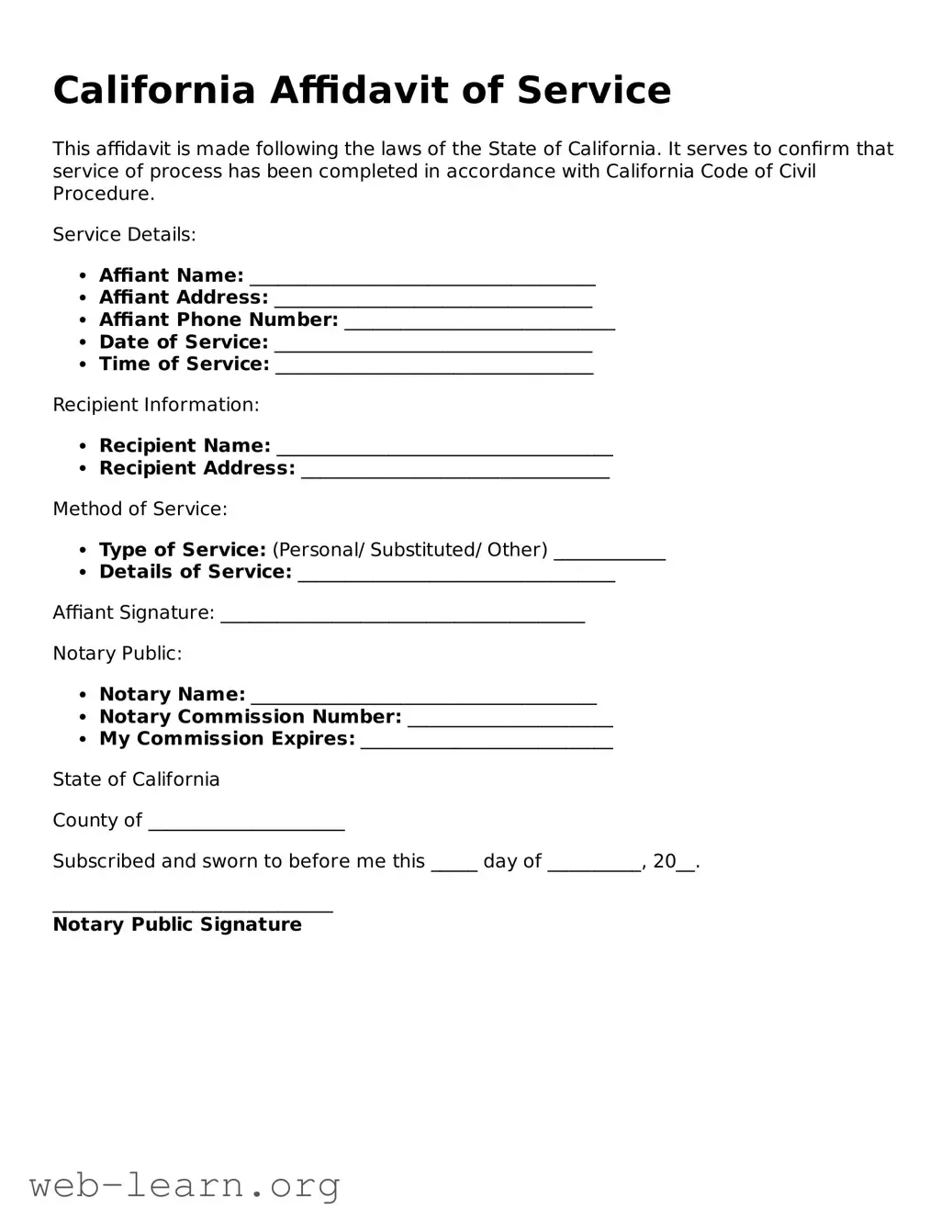Filling out the California Affidavit of Service form is an important step in the legal process, and mistakes can lead to delays or complications. One common mistake is failing to include all necessary details about the person being served. It's crucial to provide their full name, address, and any other identifying information, as omitting this data can make the service of process invalid.
Another frequent issue arises from not specifying the method of service used. Whether the document was served in person, by mail, or through another method, clarity is key. The form requires a detailed explanation of how and when the documents were delivered to ensure that the service meets legal standards.
Many individuals also overlook the requirement for signatures. The affidavit must be signed by the person who performed the service. Not including a signature can render the affidavit ineffective. Furthermore, not including the date of signing can cause confusion about the timeline of events, which is especially important in legal matters.
Additionally, errors can occur when filling out the form regarding the court information. Providing incorrect information about the court’s name or case number can lead to significant issues and may require resubmission of the document. It's essential to double-check this information before finalizing the affidavit.
Some people mistakenly use unclear or vague language when describing the circumstances of the service. Using specific and precise language helps prevent misunderstandings or disputes about whether the service was executed correctly. Avoid assuming that the details are obvious; clarity is always beneficial.
Another common mistake is not keeping a copy of the completed affidavit for personal records. It’s wise to have documentation for your own reference in case any questions or challenges arise later. This simple oversight can make it difficult to provide evidence of proper service if needed.
Lastly, waiting too long to file the affidavit can be a mistake that many make, especially if there are deadlines involved. Timeliness is essential in legal processes, so submitting the affidavit sooner rather than later will help keep everything on track and avoid unnecessary complications.
